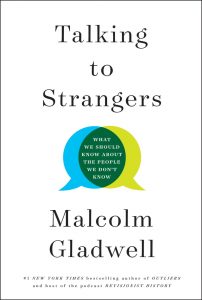We like to read people in person. It gives us the confidence to interpret the emotions and intentions of another person from their overall appearance and actions. It’s a custom to look people in the eye and ask them questions.
The way they respond gives us the confidence to tell what’s happening. Mannerism and social cues are also part of the mix.
Yet, we are really bad at this. So bad that it would be better to just flip a coin. And the even worse part is that we think we are good at it. And then, we act upon our interpretations.
This is why AI-based analysis can be fairer and more just in some cases. An algorithm does not have the human factor that can make things totally wrong and in some cases horribly wrong with dire consequences.
Our intuition helps us at times but it can also be mixed with prejudices, preconceptions and biases that we are not aware of. Our perception is based on our previous experiences and we easily misread situations.
The book gives many examples with troubling real-life examples. Professional spies and psychologist can be fooled as any other human beings. And this is not necessarily a bad thing considered the alternatives.
We are tilted towards giving the benefit of doubt to people and believing in them. Defaulting to the truth makes our society to work. If we were to suspect everything and everyone we could not cooperate.
The fact that some people are not operating with the same behavioural patterns than most of us is just the cost of being human. Often, the warning signals and red flags need to be really in our face. It takes a ton of evidence to shift our perception towards the negative assessment. Bernie Madoff is an example of a Ponzi scheme operation that managed to go on for a very long time.
Harry Markopolos and his team of fraud investigators brought to SEC proof of his wrong-doings for over a decade, and SEC ignored them every time. A good reputation beats suspicion and doubts, even with facts.
When we are under the influence of alcohol we don’t have an issue of inhibition but myopia. We lack imagination and focus only on the immediate experience. It narrows our focus and makes us ignore the long-term consequences.
That’s something to keep in mind. It might explain those brilliant ideas that did not sound too good next morning.

